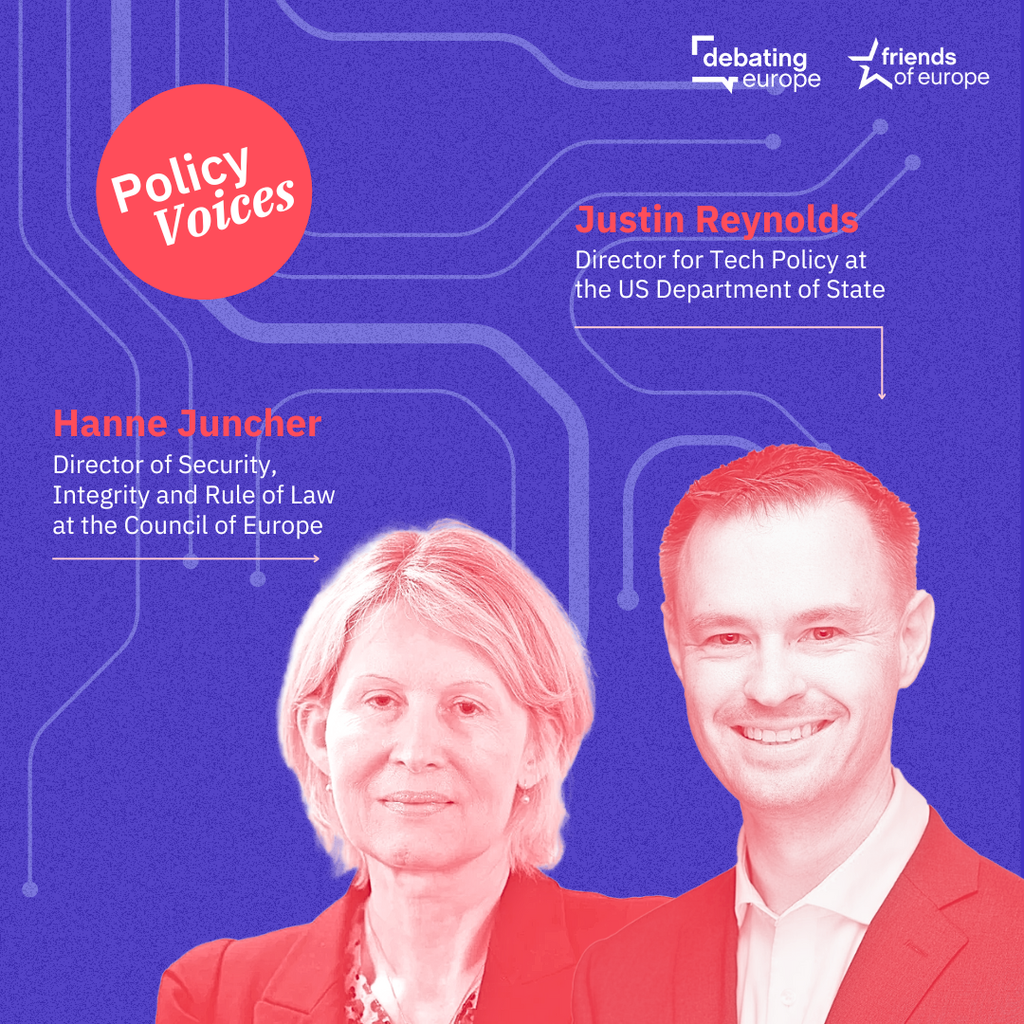A European agenda for space: resilience, security and sovereignty
Past event In person

- Area of Expertise
- Digital & Data Governance

Director of Programming at the Hellenic Initiative and 2015-2016 European Young Leader (EYL40)
Michael Printzos is Director of Programming at the Hellenic Initiative and European Young Leader
I was recently advising a start-up offering job opportunities to individuals willing to relocate across the world. In one case, a Dutch chef working in a hotel in the Caribbean signed a contract with a new hotel chain in Georgia. Mobility is the key word in today’s labour market, but it doesn’t solve all the problems.
In my country, Greece, the CEO of a large multinational corporation will still find it hard to recruit for an entry-level position while at the same time youth unemployment rates are over 50%. Such peculiar observations are traditionally seen as a problem, but are now being taken by some as an opportunity. People often talk about ‘brain drain’ killing Europe’s best, while others, like the founders of the start-up I have been advising, see it as more of an opportunity, describing the phenomenon instead as ‘brain circulation’.
Ever since its establishment in 1997, the European Employment Strategy (EES) has been trying to set common objectives and goals regarding employment policies in order to make life easier for jobseekers. A lot has been achieved, including a fight against the number of administrative barriers within member states that often prevented the free movement of workers in the EU. People today find it much easier to look for a job abroad than before, and are also given indirect opportunities to kick-start their career in a foreign country through study programmes like Erasmus and Leonardo, which guide them into different cities.
All of this is good provided you actually secure a job at the end of the programme; otherwise you’re doomed to the eternal search many are still faced with. Here in Greece, when someone graduates as a chemical engineer, he or she has a couple of years of grace to find decent work. If the graduate doesn’t find work immediately, they will most likely end up supporting their family by working in a completely irrelevant sector – it wouldn’t be unusual for such a person to become a bartender on a Greek island. Even worse, they may have to continue in this job for long enough that when the right opportunity finally arises, there is nothing to boost their candidacy besides a well-framed, and now slightly dusty, degree. That, in practice, is driving people out of the market, making little to no use of the investment that they themselves, their families and their countries put into educating them.
People often talk about ‘brain drain’ killing Europe’s best, while others see it as more of an opportunity
But this description of the problem is a picture only in black and white, and is probably unfair and certainly lacks imagination. We need at the very least to add some grey – policies that will bridge the gap between the unemployed and the employed, not just matching the unemployed with whatever jobs are available at any given time.
My answer to the problem is the launch of a massive programme for paid, enterprise-based internships within the EU. I am an advocate of using paid internships, for what should be their primary role, to bring new talent into a company, not as a way of finding cheap labour. Internships can also be used by candidates to explore a number of potential job markets besides those in closest proximity to either their location or field of study. Traditionally, only a few sectors asked for student internships such as medicine, the law and sometimes accounting. All other sectors are more or less left without an established internship culture.
Companies are very selective, and once they pick someone they tend to stick with their investment. A good enough candidate working as an intern has considerably more chance of staying on to work for the company as opposed to an unknown competitor for the permanent position from outside. This is not a theoretical remark but a practical observation. The institution I work for, The Hellenic Initiative, has been one of the main sponsors of such a programme in Greece called ‘Regeneration’.
An intern has considerably more chance of staying on to work for the company as opposed to an unknown competitor
The programme, launched a couple of years ago, has so far had an overwhelmingly positive response from the participating companies, and the number of applications received and placements offered has nearly doubled since launch. Even with the dire macroeconomic factors surrounding Greece today, participating companies were asked to pay their interns the minimum wage for six months, and in return we guaranteed after a tough selection and training process to assign them the best fits for their vacancies. This small-scale experiment had a 78% success rate when it came to interns getting their contracts renewed and being hired as full-time employees.
I am sure that many can think of different alternatives to this idea, like for example having students involved in such programmes as part of their course and not waiting until after they graduate to gain work experience. But the main idea remains quite simple and is easy to implement. We need to bridge the gap between what universities offer and what companies need, and a good way of doing so is to spend as much time as possible in both worlds.
Past event In person

Next event In person & livestreamed

Past event Online

Past event In person





Stay informed
We use cookies and similar technologies to adjust your preferences, analyze traffic and measure the effectiveness of our campaigns. Learn more about our privacy policy.